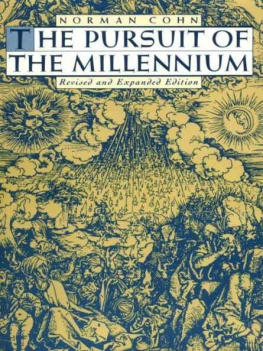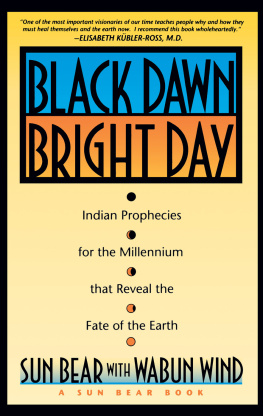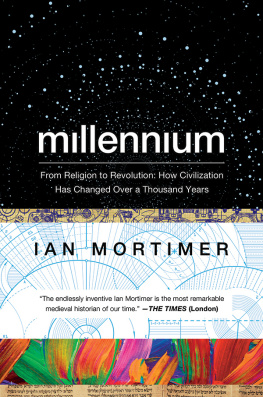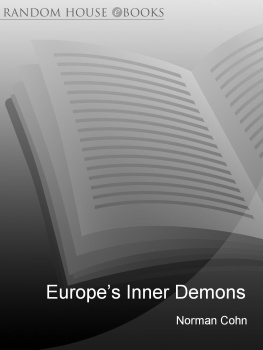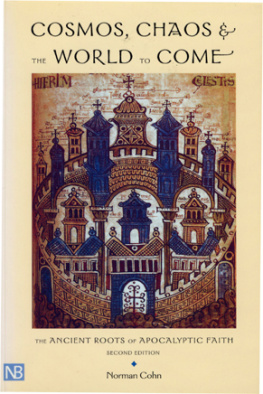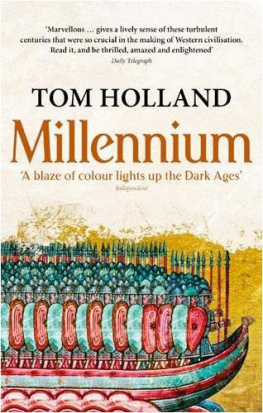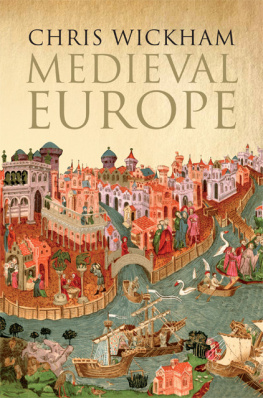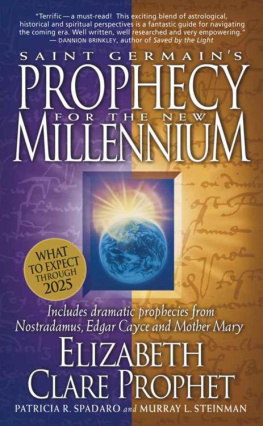Table of Contents
Oxford London Glasgow
New York Toronto Melbourne Wellington
Nairobi Dar es Salaam Cape Town
Kuala Lumpur Singapore Jakarta Hong Kong Tokyo
Delhi Bombay Calcutta Madras Karachi
Copyright Norman Cohn 1961, 1970
First edition, 1957
This revised and enlarged edition first issued as an
Oxford University Press paperback, 1970
printing, last digit: 29 28 27 26 25 24 23 22
Printed in the United States of America
Foreword
The publication of a third edition of The Pursuit of the Millennium has provided an opportunity for a thorough revision. Almost a quarter of a century has passed since I began work on the book, and thirteen years since I finished it. It would be a poor comment on the progress of scholarship, or on my mental elasticity, or on both, if I could find nothing in it now to modify or clarify. In point of fact I have found plenty. The new version has thirteen chapters instead of twelve, and a different Introduction and Conclusion; two other chapters have been substantially altered; and innumerable minor changes have been made throughout. Some readers may like to know what, in general terms, all this amounts to. The changes, then, can be summarized as follows.
In the first place, the results of recent research have been taken into account. The Pursuit of the Millennium is still the only book on its subject, i.e. the tradition of revolutionary millenarianism and mystical anarchism as it developed in western Europe between the eleventh and the sixteenth centuries. But there have been many fresh contributions, ranging from short articles to long books, on individual aspects and episodes of that story. In particular the picture of that mysterious cult, the Free Spirit, has been filled out by the labours of Professor Romana Guamieri, of Rome. These labours have included the identification and editing of The Mirror of Simple Souls of Marguerite Porete - a basic text of the Free Spirit, which admirably complements the much later Ranter texts that form the Appendix to the present work. Professor Guarnieri has also produced the nearest approach that has yet been made to a complete history of the cult, in Italy as well as in northern and central Europe. Our knowledge of the Taborites, Pikarti and Adamites of Bohemia has likewise been deepened, not only by the constant flow of Marxist studies emanating from Czechoslovakia but also by an impressive and enlightening series of articles by an American scholar, Professor Howard Kaminsky. These major additions to knowledge, along with many minor ones, have been incorporated into the relevant chapters of this book.
As The Pursuit of the Millennium never was intended to be a general history of religious dissent or heresy in the Middle Ages, most of the recent research in that field which is abundant leaves its argument untouched. Nevertheless it is a thought-provoking experience to read such wide-ranging and authoritative works as Dissent and Reform in the Early Middle Ages by Professor Jeffrey Russell; Heresy in the Later Middle Ages by Professor Gordon Leff; and The Radical Reformation by Professor George Williams. None of these works overlaps with The Pursuit of the Millennium in more than a couple of chapters, but between them they offer a grandiose history of dissent extending from the eighth century to the sixteenth. Viewed in this wider context, the sects and movements described in the present volume emerge all the more clearly as exceptional and extreme: in the history of religious dissent, they form the most absolute, anarchic wing. The new Introduction defines their peculiarities, while the new Chapter 2 shows how they fit into the larger picture.
The social composition of these sects and movements, and the social setting in which they operated, were adequately indicated in the first edition; and it proved unnecessary to make any changes on that score. It may be that economic historians could, by detailed research into individual cases, bring further enlightenment; but certainly none is to be expected from the current exchange of dogmatic generalizations between Marxist and non-Marxist historians of heresy. Nothing, for instance, could be more sterile than the debate between certain historians in West and East Germany as to whether heresy can or cannot be interpreted as a protest of the unprivileged; the former being, apparently, unable to imagine how a religious movement can express social animosities, and the latter how dissent can come from the privileged strata. The best protection against such oversimplification is some acquaintance with the sociology of religion. So fortified, one is unlikely to imagine that all medieval heresy was of one kind, reflecting the same kind of discontent and appealing to the same segments of society.
So far as revolutionary millenarianism is concerned, its sociological import emerges from chapter after chapter of this book; but I have also tried to summarize it, as concisely as possible, in the Conclusion. The Conclusion is indeed the part of the book that has attracted most attention of all; in particular, much comment, both favourable and unfavourable, has been provoked by the suggestion that the story told in this book may have some relevance to the revolutionary upheavals of our own century. This argument has been discussed at length not only in reviews and articles but also, and most profitably, in spontaneous debates at the universities, British, Continental, and American, where I have been invited to lecture. All this has helped me to clarify my ideas on the matter; and while I am still convinced that the argument is valid, I think that it needed to be expressed both more briefly and more clearly. I have attempted this in the new Conclusion.
Finally, the Bibliography. The old Bibliography, which was purely historical, has been revised to include historical works which have appeared since the original version of the book was written; they are marked with an asterisk. But The Pursuit of the Millennium belongs at least as much to the comparative study of millenarianism as to the study of medieval history; and in that field too very considerable progress has been made in recent years. A selection of recent works and symposia, mostly anthropological and sociological, is given as a supplement to the Bibliography; and many of these themselves contain bibliographies which will enable the interested reader to explore further in this difficult but vitally important field.
N.C.
The University of Sussex
February 1969
Introduction: The Scope of this Book
The original meaning of millenarianism was narrow and precise. Christianity has always had an eschatology, in the sense of a doctrine concerning the last times, or the last days, or the final state of the world; and Christian millenarianism was simply one variant of Christian eschatology. It referred to the belief held by some Christians, on the authority of the Book of Revelation (XX, 4 6), that after his Second Coming Christ would establish a messianic kingdom on earth and would reign over it for a thousand years before the Last Judgement. According to the Book of Revelation the citizens of that kingdom will be the Christian martyrs, who are to be resurrected for the purpose a thousand years in advance of the general resurrection of the dead. But the early Christians already interpreted that part of the prophecy in a liberal rather than a literal sense, in that they equated the martyrs with the suffering faithful i.e. themselves - and expected the Second Coming in their lifetime. And in recent years it has become customary amongst anthropologists and sociologists, and to some extent amongst historians too, to use millenarianism in a more liberal sense still. The word has in fact become simply a convenient label for a particular type of salvationism. And that is the way it will be employed in this book.

